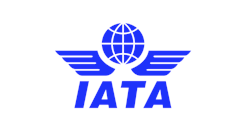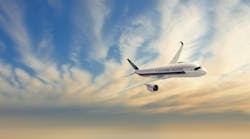Oct. 20—Alaska Air Group posted record third-quarter revenue and strong financial results Thursday, stoked by high fares and full airplanes through the summer. After a nightmarish breakdown in its operations in the spring, the airline recovered in the quarter to lead the industry in on-time performance.
Despite recession fears and a large increase in labor costs from major contract deals with its pilots, Alaska Air CEO Ben Minicucci on Thursday proclaimed the airline was back on a growth trajectory.
From July through September, Alaska Airlines went a long way toward restoring its reputation for reliable service, which had been shredded in the spring when pilot and other staff shortages caused last-minute flight cancellations that ruined travel plans.
In response, Alaska cut its summer flying schedule, reducing capacity by about 7%. Even as other airlines continued to struggle with staff shortages, that pullback steadied Alaska's operation.
"This summer we returned to delivering a reliable operation with a completion rate over 99% each month of the quarter," Minicucci told analysts on an earnings call Thursday. That means less than 1% of flights were canceled.
Travel statistics on the U.S. Department of Transportation website show Alaska had the top on-time performance among all U.S. airlines in June and July. Aviation data company Cirium shows it ranking No. 2 in August behind Delta and No. 3 in September behind Delta and United.
Minicucci noted that Horizon Air, Alaska's regional airline subsidiary, "also posted fantastic operating results with the No. 1 completion rate in the industry at 99.5%."
"I want to thank all of our employees for a great summer and everything that they do," Minicucci said.
Record revenue from high fares
Chief Financial Officer Shane Tackett said the company gave every employee 90,000 frequent-flyer miles "in recognition of all of their extraordinary work during the pandemic and our 90th anniversary as an airline."
Tackett said with Alaska's improved financial results, the company expects to pay out strong annual bonuses in January.
CEO Minicucci said 65 newly trained pilots are coming out of Alaska's training school each month and the goal is to increase that to 100 per month.
He said the exceptionally large pay increases awarded last month to the entry-level pilots at Horizon Air "provides us a strong foundation for our efforts in attracting, retaining and building a robust pilot pipeline."
The contract ratified this month with the Alaska Airlines mainline pilots adds further certainty to the pilot staffing.
"We are on track right now to deliver the pilots we need per month on both the regional and the mainline side," Minicucci said.
With air travel demand high and fewer seats available, passengers were stuck with soaring ticket prices across the industry this summer and airlines raked in money as a result.
Alaska's $2.8 billion in revenue for the quarter was the highest "ever recorded in our history," Minicucci noted.
For the three months through September, Alaska posted a net profit of $40 million or 31 cents per share.
Adjusted to exclude one-time costs — including contract ratification bonuses after major labor deals with the pilots, as well as charges for retiring Airbus jets — the net profit was $325 million, or $2.53 per share, compared with an adjusted profit in the same quarter last year of $187 million or $1.47 per share.
However, the market reacted negatively to management's outlook for the fourth quarter results. Alaska's stock closed at $39.88, down $1.97 or 4.7% for the day.
American, Delta and United all reported record revenue and large profits in the third quarter. Each of those stocks also fell Thursday, but not as much as Alaska's.
Wall Street analysts lowered their estimates for Alaska's fourth-quarter results as management projected higher labor costs following the contract agreements with their pilots.
"Shares were down ... on a 4Q outlook that falls short of consensus," analyst Dan McKenzie of Seaport Global Securities told investors in a research note.
Staffing up
Tackett said one lesson management learned from the pandemic is that its staffing was too lean.
"Last year, we were trying to hire just in time to meet the new capacity, and then we'd get hit with a COVID wave and people would be sick and absent, and we could not operate," he said. "Like others in the industry, we have totally done a 180 on that. We're now carrying more people than we need."
Carrying the additional staff cost an extra $15 million during the last quarter, Tackett said.
Meanwhile, Alaska Airlines is accelerating its effort to streamline its jet fleet and revert to being an all- Boeing carrier.
The airline is rapidly retiring its Airbus aircraft, replacing them with larger Boeing 737 MAXs. And regional airline subsidiary Horizon Air is replacing its Bombardier Q400 turboprops with Embraer E175 jets.
Alaska has 35 MAX jets today. By the end of next year, all the Airbus jets will be gone, and the airline expects to have 78 MAX jets, making up nearly one-third of its mainline fleet.
Between now and the end of the year, and into the first quarter of next year, Alaska will maintain its lower flying capacity as it retires the Airbus jets and retrains pilots to operate the MAX planes.
But the company expects to grow after that. The airline will be back to its 2019 size by the middle of next year, said Tackett, and will grow capacity beyond that, if demand holds.
CEO Minicucci said the "long-term plan is still to grow until 2025."
Chief Commercial Officer Andrew Harrison told analysts that in the fourth quarter, even though Alaska will be flying 7% to 10% fewer seats than in 2019, it nevertheless expects revenue to increase by 12% to 15%, reflecting higher fares.
Beyond that time frame, Harrison predicted smooth operations, confident that the COVID-induced volatility and disruption of the first half of this year is firmly in the past.
"We're going to set ourselves up next year to really operate this airline like a Swiss watch," Harrison said.
___
(c)2022 The Seattle Times
Visit The Seattle Times at www.seattletimes.com
Distributed by Tribune Content Agency, LLC.


